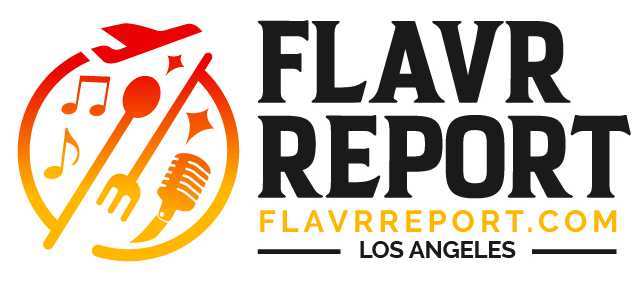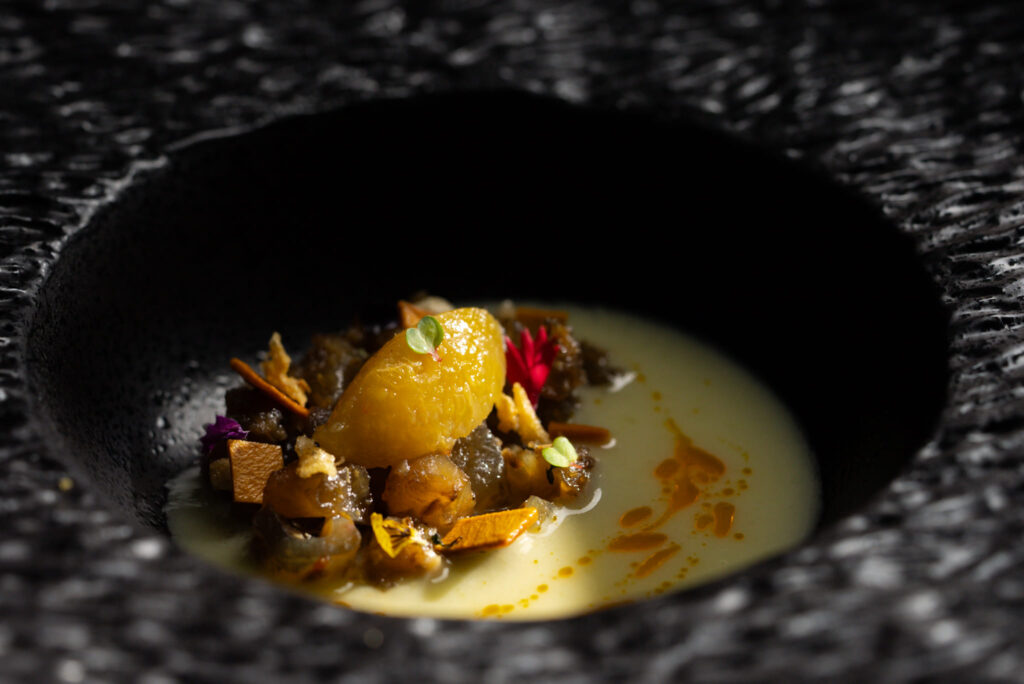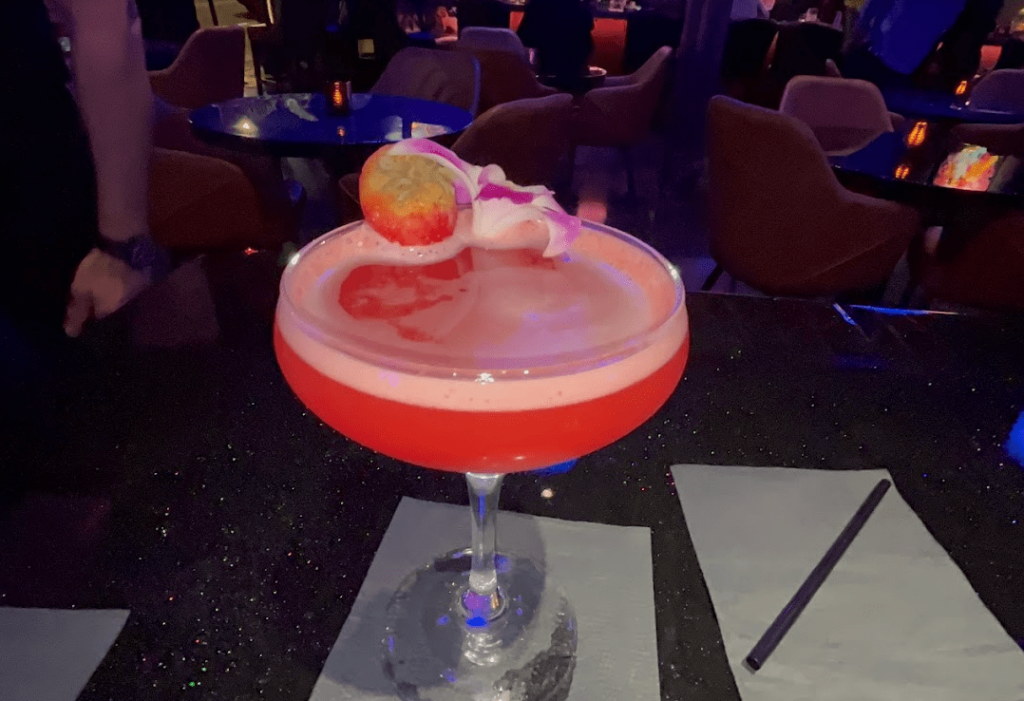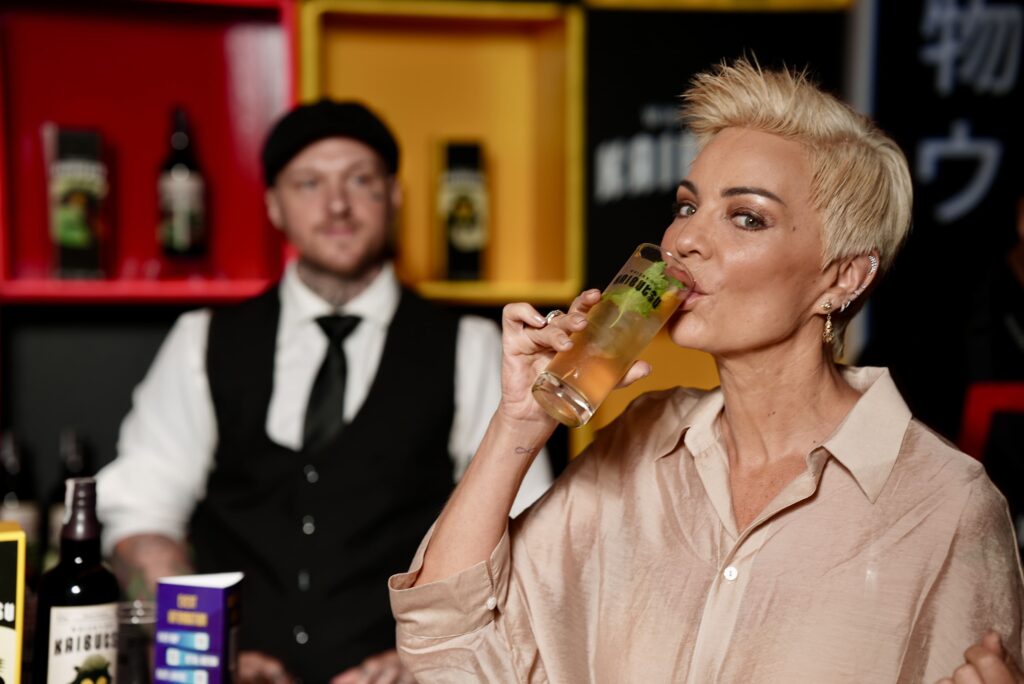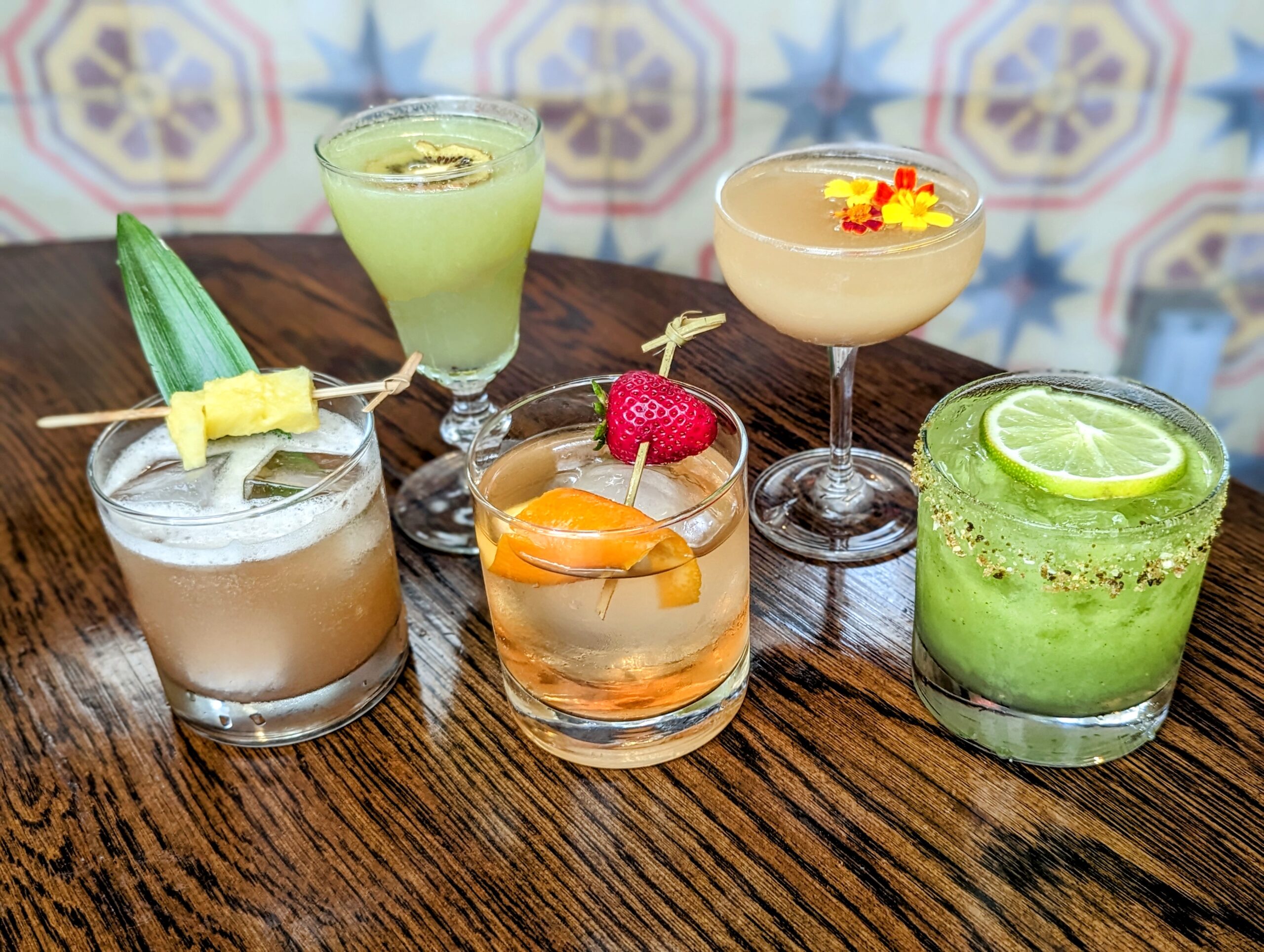Heraclea Olive Oil delivers flavor, health and heritage, reveals Berk Bahceci
We are here with Berk Bahceci from Heraclea Olive Oil.
Berk joined me for a conversation (via zoom). Below has been edited for length and clarity. Find the full conversation on our YouTube Channel.
I’m excited because I’ve tasted your olive oils and they’re subtle, they’re flavorful, and there’s a great story behind them. And today I wanna touch on all of that and a little bit more.
Tell me a bit about your background and how you got into olive oil
Berk: Sure. I moved to the United States approximately 10 years ago for college. Actually. That’s how my story here started. I studied economics at UCLA and then I went to law school at UC Berkeley.
But the day I started law school, I realized something was off. I started questioning whether I was the material to be an attorney. Three years passed by. I took the bar exam and started working. In my first year I realized, I don’t want to be a lawyer anymore.
I started looking for an exit plan. So I reflected back on myself, my life, my childhood. What is one thing that would make me wanna wake up every day with excitement?
I realized olive oil is out there. My family owned some olive groves before, but we were never doing this with a business mindset. It was just produced and consumed within family and friends. I came up with the idea to tell my family, why don’t we turn this into a business, create a brand around it, and sell it here exclusively in the United States.
The market itself is very dominated by a couple big players from certain countries.
I did more research and realized that Turkey is the fifth largest importer of olive oil into the United States, but you are not seeing any Turkish brands on shelves.
What’s the reason for that? It’s probably because producers in Turkey don’t have the means to come here, establish a distribution center like channels, and move product. Selling in bulk is the easiest and most convenient way for those people.
But I wanted to bring a new way for the Turkish olive oil in the United States with Heraclea that’s how we found it.
We’re definitely gonna get into Turkey in a second. A lot of the people watching this are wine lovers. Region is very important. So tell us about the region that you’re farming
Berk: Region has an impact on olive oil as well. That’s the reason why the European Union has a scheme called Protected Designation of Origin. I’m sure wine lovers and cheese lovers will know, when I say PDO, the red and yellow emblem that you see on certain products sold in specialty food stores.
PDO is basically a stamp given by the European Union, to distinct products. What do I mean by that? So the variety of olive that we work with is called Memecik. There are over 2000 olive varieties in the world.
Do me a favor, say that variety again and spell it for us.
Berk: It’s called Memecik. It is very unknown, very rare because it is specific to the region that we produce.
And that’s why the European Union has given a couple years ago to this region and this olive variety, A P D O certification. For example, in California most growers are bequia, right? If they were to plant Memecik, which they can, in California, they won’t be able to have this PDO certification.
So PDO only comes if Memecik is grown in Milas. That’s a very special thing for us and we are very proud to be working with a very rare variety. So when you buy olive oil, it is for certain that you won’t taste it with any other brand because it’s distinct to Milas.
Just the same way that champagne only comes from the Champagne of France.
Berk: That’s exactly what I was going to say.
When did you realize the magic and the power of the Memecik varietal?
Berk: This PDO certification is so new that we did not found this business upon that, that certification. It was just an added value with the PDO, but we always knew that our olive oil was distinct in its quality.
It has actually recently been approved by International judges in New York International Olive Oil competition, Japan Olive Oil Competition, Istanbul Olive Oil Competition. We got gold and silver medals from all of these. And this is the first year that we are actively participating in these competitions.
It’s a really good moment for us because usually these things don’t happen in the first or second year. [Usually] you’re a producer for multiple years or maybe generations. So we’re really proud about that.
Congratulations. And just to give someone listening or watching an idea, the scale of these competitions.
Can you estimate how many different olive oils are in that competition?
Berk: I would say in the thousands, 2000. Maybe a hundred companies are winning these awards. You’re in the select field of the top 5-10% in the entire world.
The panel is composed of people from all around the world, from all producing regions, Italy, Tunisia, Greece, Turkey, Chile, Argentina. Experts. So it’s a good indication that the product is at a certain level of quality.
So let’s talk about the behind the scenes and the process of making this award-winning olive oil.
Berk: We have around a hundred acres of land with over 10,000 trees that we take care of with a team of seven full-time on the field every day. We don’t use any fertilizers, we don’t use any pesticides. We don’t use any chemicals. One reason is our grows are literally on the on mountains. They’re not plantations.
Many olive oil brands have what people call “olive farms” where the companies do intensive and super, super high density farming, which means that where maybe 10 trees would go. They plant a hundred trees. So it’s very compact, producing very high yield olives, but lacking taste because they’re fed with irrigation all the time.
So the olives get really big when they’re given water every day, whereas our olives don’t have irrigation because it’s on the mountains. Our olives, in comparison, are relatively smaller, which keeps the aroma very vibrant. That’s actually the secret behind it.
A lot of people who taste our early harvest olive oil say that it’s a little bit bitter, especially right after the harvest. That comes from the antioxidants that are loaded in it. Because our olives are very small. The density of antioxidants is higher, so that’s why the bitterness comes in.
We just prune the trees, cutting the excessive branches because we’re working in a very scarce, nutrient environment. Like I said, no fertilizers, so you have to keep the trees very optimal by cutting the unnecessary trees and branches so that whatever there is in the soil goes to the fruit.
That’s why our team of seven constantly does these kind of things. These kind of physical touches, no like chemical alteration or anything. Around October we start walking around the grow to determine the day of the harvest. That is the most exciting time of the year
Due to not using fertilizers, we really have to optimize the day of the harvest to maximize our production. So when we determine that day, which is mid-October, usually we start harvesting.
We hire local men and women who are living in nearby villages. We go in with a team of 20 to 30.
We keep it for 90 days until January. We don’t want to go into January. Because fruit flies, conditions and a lot of other things impact the quality.
So we try to finish everything from mid-October until January. We work with a local mill to process our olives. We take two batches every day, one in the afternoon and one at night because we don’t wanna wait in between.
If you start harvest at 8:00 AM and harvest until 4:00 PM the olives that you have harvested at 8:00 AM will have waited nine hours before going into the processing machine. We don’t wanna do that because as the olive waits, fermentation starts and the quality decreases.
So we do two deliveries every day to the local mills, one in the afternoon, and one later in the day. This way we ensure that our olives go right into production within two to four hours of harvest. Believe me, we’re working really hard to maintain that.
Then we store our olive oil in stainless steel tanks in temperature and humidity controlled rooms with nitrogen gas used as a buffer between the olive oil and the rim.
Think of a five ton tank. You fill it out, but there’s always some portion of the tank that is left empty and there’s oxygen in that empty part. When olive oil touches with oxygen in the stainless steel tank as it is stored, oxidation starts, which leads to rancidity, which decreases the quality of the olive oil. So we take that oxygen out by pumping in another gas – of course, food grade safety, no worries there.
That’s the level of attention and care we give to our olive oil.
Let’s switch to the the tasty part. Let’s talk about the flavor of your two bottles. Flavor profiles, aroma, anything you’d like.
Berk: So we have two products right now. We’re bringing in a third one soon.
Olive oil is the white bottle which is made from olives that we harvest starting from October until mid-November.
And the moment that we switch from early to mature harvest is when the olives start turning into this purplish color. As months pass the green olives start to ripen and then change in color. When we see that change into purple, that’s the moment we say, okay, early harvest is done.
Now we’re doing mature harvest and then everything else that we harvest mid-November, till January, is considered mature harvest. That’s the distinction between the two.
The mature harvest is the black bottle. And when it comes to flavor profile, there’s one disclaimer that I wanna make, uh, in general about, uh, these, uh, like.
Flavor profiles. I think to really understand and feel and get this smell. In any olive oil, you have to have a sensory memory, have that experience in your mind, I still remember it.
Here’s an example from my sensory memory:
We had a walnut tree right across the street by our house, and there was a fine paper-like cover, outside of the walnut. Right before they mature, we would take from the tree and taste it and it’s bitter. So that [bitter] taste is in my sensory memory right now.
Same as tomato stems. Like if you touch a tomato plant with your hands and play around and then smell your hands, you’re going to get a very unique tomato stem smell, and that’s like embedded in your mind now. So from now on, every time you taste an olive oil, if there is that distinct smell or taste in it, that’s how you recognize it.
So in our olive oil, early harvest, for example, I get the notes of freshly cut grass, tomato stems, walnuts, banana.
What I was told in this olive oil school that I went to in Spain is, get your hands out there. Touch everything, smell everything. Taste everything. That’s how you develop your sensory memory.
And that’s how you become, as people say, familiar. But you know, like you don’t have to have a certificate to be one. You know, you just go out there and taste stuff and try to. Memorize and remember those smells and tastes.
I was talking to somebody earlier this week about food pairings and he had a similar answer, which was be curious.
Exactly. Taste things, touch things, smell things, and be curious.
I know your website has a cookbook, let’s talk about some of your favorite food pairings with your olive oil
Berk: I love drizzling our early harvest on cheese plates. That’s my favorite thing. Early harvest is more for finishing dishes because it has a bitter aroma to it.
If you cook with it, you may have a bitter taste in the food. Actually, I know people who cook with our early harvest. I know people who drizzle with our mature harvest, so it’s not set in stone.
It really depends on what you like, but generally, early harvest is better for drizzling over salads. Hummus, cheese. Sometimes I dip my bread in it.
That’s a tradition we have in Turkey sometimes, find a piece of bread and dip that into your olive oil, and that’s a good breakfast.
Mature harvest is for everything else. Cooking, baking, marinating. A lot of people are saying that they use it for marinating.
Anything else you want us to discover about olive oil?
Berk: Our goals are twofold. One is, olive oil is a very healthy product for human consumption, There is research showing that the positive effects on health of olive oil, daily consumption of olive oil. We believe that a product that is so healthy for humans should do no harm to the environment.
It’s production should not cause any more trouble to our Mother Nature. That’s why we’re not using fertilizers. That’s why we’re not using pesticides. We think there’s a solution in nature to resolve any problem that these things claim to be curing. That’s number one, producing as environmentally friendly as possible.
Number two is to introduce to the world the intricacies of Turkish cuisine. It is beyond just kebab. It is just one meal in thousands of distinct and unique recipes. And the way that we treat these recipes are not just a list of ingredients.
To us, these are stories from past generations and that Turkish cookbook has 550 very distinct recipes. Each recipe is associated with a specific region or maybe sometimes even a village.
It almost sounds Farm To Table.
Berk: Exactly. That’s the goal. We’re small batch and we have really certain values and principles.
Are there any specific health benefits that you wanna cover?
Berk: There are a lot. There are a lot of research. I’m not a scientist. I’m not a doctor. But consuming olive oil daily helps with chronic diseases. Cardiovascular diseases. Type 2 diabetes, and many more.
We have lab reports showing the amount of antioxidants in our olive oil, which is around 500 milligrams per liter, which is a high amount. Consuming antioxidants is healthy. Olive oil has anti-inflammatory effects as well.
When you consider all of these things and if you consume fats, why don’t you switch to a healthy alternative where research shows that its consumption helps you.
That’s why as a layman I recommend consuming olive oil on a daily basis.
Berk, you’ve given us a lot of good information. You’ve given us a lot of tasty ideas.
Let’s talk about how to buy and how to, how to where we can buy your olive oil.
Berk: We’re available online at heraclea.co. There is no “m” at the end.
We will very soon be available on Amazon.
If you are in New York, we will soon be available in NoHo. Manhattan. Then if you are in Seattle, very soon we will be available in a grocery chains in Seattle.
Hopefully by end of this year we will be in over a hundred physical locations
